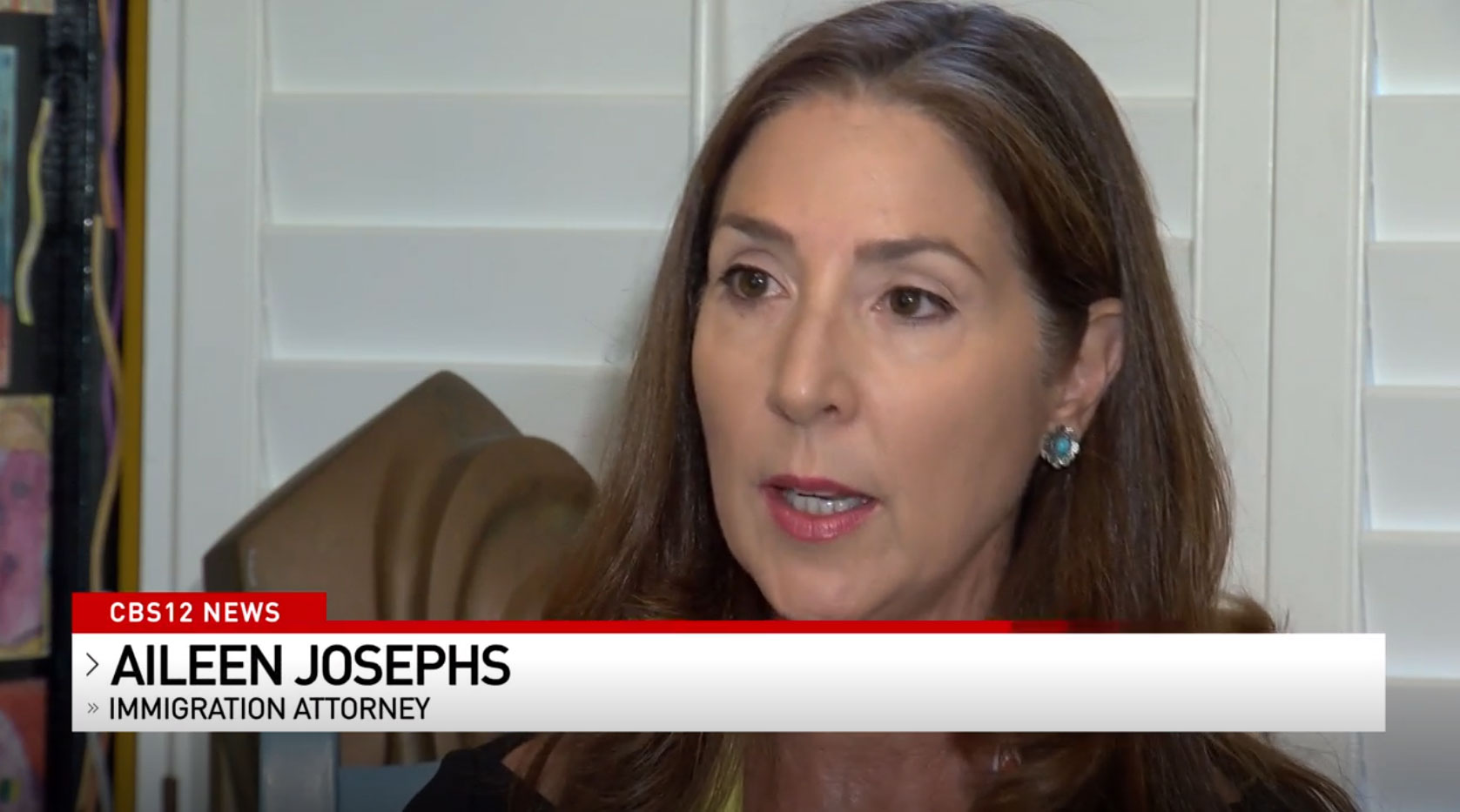New look at conditions at Homestead migrant camp; attorney urges holistic solutions
Date: Apr. 17, 2019 by Chuck Weber - CBS12immigration, Homestead, liberties, camp

West Palm Beach - A new picture has emerged of conditions at the Homestead camp for unaccompanied immigrant children.
The revelations come in a document filed in recent days in federal court in California.
The kids themselves describe a sad existence, but a prominent local immigration attorney cautions releasing kids too soon could wind up putting them in the hands of criminals.
“I give credit to those attorneys fighting for the rights of children, but it is a very complex policy issue, which is not black and white,” said longtime West Palm Beach immigration attorney Aileen Josephs. “I know that they’re arguing kids are being detained more than 20 days, but the fact is that we have a mass flash migration of unaccompanied minors like we have never seen in our history."
A consent decree from the 1990s mandates release of immigrant children within 20 days, either to relatives or to other non-secure licensed shelters.
The stays at Homestead, according to the court filing, are much longer and the document calls Homestead “prison-like” and “military-style." It was a former military base.
A 13-year-old at Homestead described the camp’s rules: “No touching, five minutes for taking showers, 15 minutes to eat, no lending clothes, no sitting on anyone else’s bed.”
Another child said, “I cannot give anyone a hug. I need to be comforted, but there is no way for that to happen here.”
The attorneys authoring the filing write permission is needed to get water, use the restroom and “children are limited to a maximum of two telephone calls a week of 10 minutes each.”
The attorneys warn of “long-lasting psychological, developmental and physical harm on children.”
But Josephs urged looking at the big picture.
“There’s a lot of pressure to release the kids within 20 days, but I don’t agree with that,” she said. “I think we should vet those relatives or family members that will accept them and make sure they’re protected. If we do not vet the relatives carefully, they could be sent to people that are involved in the human smuggling trade, and abused further."
Josephs added that she knows of and has heard of such cases.
She said the human smugglers are taking advantage of the 20-day release requirement, bringing in more kids.
“People are very concerned as to what is happening to the kids here in detention centers,” Josephs said. “Yet people don’t even talk about what happens to them in the crossing.”
Josephs faulted politicians for not being able to reach a compromise on comprehensive immigration reform. But she said she’s encouraged by just-filed legislation that would allow asylum-seekers to file in their home countries, hopefully discouraging them from making the treacherous trip here.
Josephs said she feels the answer is taking a holistic approach to immigration, including doing more to improve conditions and provide opportunities in the children’s home countries so they don’t feel they need to leave to survive. She said she’s become personally involved in efforts to educate and train kids in Guatemala.
In fact, Josephs said she has helped raise money for a new center for kids returning to the country, called Casa Shalom, set to open this summer in Guatemala City.
“That is what’s going to make the generational change, so in 10 and 20 years from now, we don’t have kids paying smugglers $10,000, risking their lives through a most dangerous crossing,” she said.
Josephs said the new facility is part of the Guatemalan Tomorrow Fund, an organization established by a Palm Beach County man aimed at educating and improving the lives of young people in that country.
See the video from CBS12
 Home
Home About
About
 Portfolio
Portfolio
 News
News
 Contact
Contact




